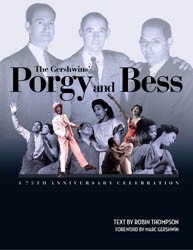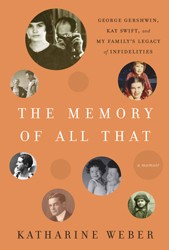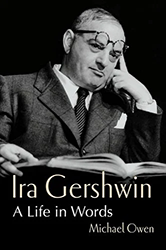In addition to being an extraordinarily talented performer, Michael Feinstein is probably today’s leading guardian and proponent of the Great American Songbook, the corpus of standards written by such songwriters as Jerome Kern, Cole Porter, Richard Rodgers, and Irving Berlin from the 1920s through the advent of rock and roll in the 1950s.
In The Gershwins and Me, Feinstein focuses on the careers of composer George Gershwin and his lyricist brother, Ira, whom Feinstein clearly regards as the brightest stars in that constellation. Feinstein brings an unusual advantage to this endeavor. Even before he turned 10, Feinstein had become a Gershwin devotee, and at the improbable age of 20 he went to work for the aging Ira Gershwin, first as a cataloguer of his musical archive, later as a general factotum and boon companion. As a result of his assiduous efforts both before and after he met Ira, Feinstein came to know more about the Gershwins’s oeuvre than they ever knew about it themselves.
That knowledge is on ample display in this volume, which is both richly illustrated and accompanied by a CD of twelve Gershwin songs performed by the author. Each of the book’s twelve chapters focuses on a song on the CD. Feinstein provides ample background information on the genesis of each song, places it in the context of the Gershwin oeuvre as a whole, and aims to define what makes each song great.
Only two flaws stand out: First, Feinstein too often allows his awe for his subjects to overshadow his considerable ability to analyze musical and lyrical structure. It’s relatively easy to assert that hearing the Gershwins’s music for the first time can be a life-changing experience, as Feinstein often does; it’s far more difficult, but also more interesting, to define how and why such seemingly simple songs can have such an effect, a task he tends to shy away from.
Second is Feinstein’s unstinting condemnation of the decline of American culture since the 1960s. He takes only grudging notice of the fact that the Gershwins’s music is still an essential element in the American periodic table. To cite just a few examples: Thanks to United Airlines (and its ad agency), “Rhapsody in Blue” is a worm in everyone’s ear; “Summertime” was a landmark in the career of Janis Joplin; Gershwin songs have figured prominently in the soundtracks of such popular films as When Harry Met Sally and Woody Allen’s Manhattan; at a Tony Bennett concert I recently attended, the set list included at least half a dozen Gershwin tunes that received thunderous ovations from an audience spanning several generations. Feinstein’s jeremiads notwithstanding, the Gershwins’s music seems to be alive and well.
Join a community of readers who are committed to Jewish stories
Sign up for JBC’s Nu Reads, a curated selection of Jewish books delivered straight to your door!




